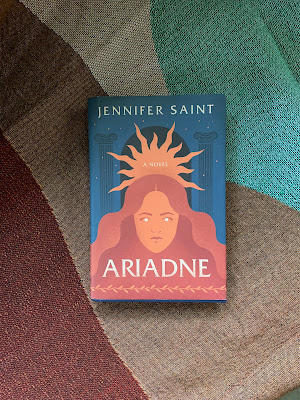So it was my first time to Komikon...
last weekend, and to be honest, I really wouldn't have gone were it not for the fact that this year's Filipino Reader Conference - at least, the second day thereof - is co-located with the Komikon at the Bayanihan Center, and our book club's face-to-face (F2F) discussion for this month is scheduled as part of the Filipino ReaderCon's book discussions. Don't get me wrong: I read graphic novels (loving Neil Gaiman's Sandman series!), but I am not that hardcore. So my main purpose in going to the Komikon, really, was to attend our book club discussion; we talked about Eliza Victoria's latest offering, Dwellers.
Most of the attendees were from our book club, The Filipino Group (TFG), and there were attendees from Pinoy Reads Pinoy Books (PRPB) as well. After the usual preliminaries where we introduced ourselves (mandatory even if we all already know each other), individually rated the book (average rating would be 4 stars, I think), and picked a person, living or dead, with whom we'd switch bodies for one day (I picked PNoy so I could tender my irrevocable resignation as president), we talked about the book. I'm better at summarizing things through bullet points, so here's what happened during the discussion, in bullet points (at least the ones I can still remember):
In sum, it was a short but good discussion. Next month, we'll be talking about Shakespeare! Join us? :)
Most of the attendees were from our book club, The Filipino Group (TFG), and there were attendees from Pinoy Reads Pinoy Books (PRPB) as well. After the usual preliminaries where we introduced ourselves (mandatory even if we all already know each other), individually rated the book (average rating would be 4 stars, I think), and picked a person, living or dead, with whom we'd switch bodies for one day (I picked PNoy so I could tender my irrevocable resignation as president), we talked about the book. I'm better at summarizing things through bullet points, so here's what happened during the discussion, in bullet points (at least the ones I can still remember):
- Most of us were good/fine/okay with the basic plot, i.e., two young men can inhabit the bodies of other people. We read the novella knowing what the basic premise is, so we more or less expected to read something supernatural, something otherworldly. We all agreed that it was a compelling, engaging book to read.
- There was a lot of discussion over the back story of Louis and Jonah, or the history of their family, who turned out to have supernatural abilities. Many agreed that the novel would have been better if the back story had been completely done away with, because it added no real value to the story as a whole. The story of Louis and Jonah would have stood on its own even without the family history. One member even commented that the shift of the narrative away from Louis and Jonah in order to "explain" the family's history in an entire chapter was jarring, and therefore, was totally unnecessary. Another commented that if the family history must be told in order to shed light on Louis and Jonah's extraordinary powers, then perhaps it could have been injected, in snatches, into the main narrative and allowed to flow naturally with the story, not plunked as an entire chapter in the middle of the book.
- The members also concurred on the relevance of some themes presented in the novel, which are identity, memory, and self-worth. The situation in which Louis and Jonah found themselves rendered them, and the persons whose bodies they inhabited, bereft of their true identities: Louis and Jonah, because they are, physically, not their "true" selves, and their "hosts," because they have already died as a consequence of the (dis)possession. Louis and Jonah have completely no idea what kind of persons their current "hosts" were, and could not access their memories even if they were totally in control of their bodies. The novel also touched upon the concept of self-worth, as the insecure girl Meryl constantly battled with her weight and appearance, and sadly, appeared to be on the losing end.
- A member raised the question of why, towards the end, one of the characters, Leslie, launched into a long tirade which included a political matter, which was totally unrelated and off-course from the main plot. Again, the popular opinion was that it wasn't necessary, and added no particular value to the story.
- Most of us were satisfied with the ending - which was an open-ended one. The interpretations were varied, but were interesting and leaned towards finding an escape for the protagonists.
- Special mention to the following passages from the novel:
"Louis and I have talked about this exhaustively. We are what we remember. Or what we choose to remember. If we lose our memories, we lose ourselves. But where do memories reside? Are they tangible objects you find in the organic brain? Do you take them with you when you leave your body, or are they left with the corpus? Do they simply disappear, like steam? Or are they more like the boxes in the attic or the ruined dresser cabinet in the basement? Things that can be abandoned and later inherited." (p. 14)
"The sad thing about pain is that you can't share it or pass it on, no matter how willing the next person is. No one can take agony away from you, no matter how many times the people you love tell you, I know exactly how you feel. You know they really don't. You suffer alone, in the end." (p. 33)
In sum, it was a short but good discussion. Next month, we'll be talking about Shakespeare! Join us? :)




Comments
Same here, I miss food on the table when discussing books. :)